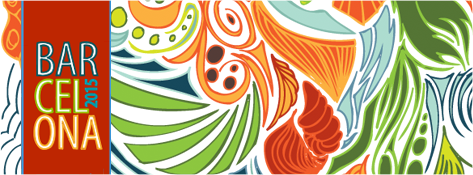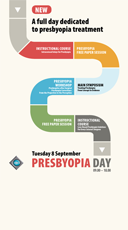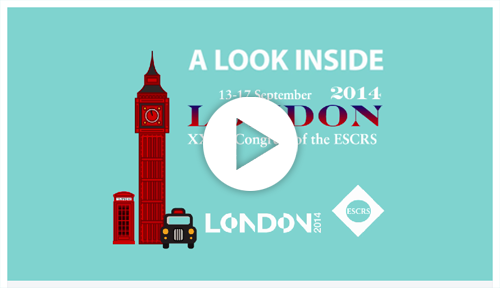Transepithelial phototherapeutic keratectomy with mitomycin C for the treatment of central corneal scars after adenoviral keratoconjunctivitis
(results will display both Free Papers & Poster)
Session Details
Session Title: Special Cases I
Session Date/Time: Sunday 06/09/2015 | 14:30-16:00
Paper Time: 14:36
Venue: Room 10
First Author: : R.Ferreira Oliveira BRAZIL
Co Author(s): : R. Coral Ghanem V. Coral Ghanem P. Elias Correa Dantas
Abstract Details
Purpose:
To assess visual and refractional outcomes, as well as recurrence rates of subepithelial infiltrates (SEI) and associated symptoms after transepithelial photherapeutic keratectomy (PTK) with mitomycin C (MMC) 0,02% for the treatment of corneal scars after epidemic keratoconjunctivitis (EKC). Secondarily, to compare these results with a control group under clinical treatment with rigid contact lenses and steroid eyedrops for SEI recurrences.
Setting:
Sadalla Amin Ghanem Eye Hospital, Department of Cornea and Refractive Surgery. Joinville, SC, Brazil.
Methods:
Retrospective case series enrolling patients with central corneal scars following multiple recurrences of SEI caused by EKC, treated between 2005 and 2010. Patients were divided into 2 groups: (1) control group included patients who refused PTK, being therefore treated with refractive correction using rigid contact lenses and steroids during recurrences; (2) study group included patients undergoing excimer laser PTK (Esiris Schwind, Kleinostheim, Germany) with MMC 0,02% for 30 seconds, with combined PRK in selected patients. We assessed: symptoms and signs, corrected visual acuity in logMAR, dynamic refraction and depth of the corneal opacities by ultrasonic pachymetry and biomicroscopy.
Results:
Thirty five eyes of 27 patients (11 men [40,7%]; 16 women [59,3%]) were enrolled, with mean follow-up of 54,4 ± 19,7 and 27,5 ± 22,8 months, respectively, in control and PTK groups. Mean visual gain of Snellen lines was 1,3 ± 1,7 (P=0,007) in group 1 and 2,8 ± 2,4 (P=0,001) in group 2. No patients in group 2 presented loss of vision. Mean hyperopic shift in group 2 was +0,66 ± 0,8 in spherical equivalent (P=ns). Significant improvement of cylinder values was observed in group 2 (P=0,009). Recurrence rate of SEI was 77,7% in group 1, and 11,7% in group 2. Eighty nine (89%) of patients in group 2 remained asymptomatic during follow-up, compared to 22% in group 1.
Conclusions:
PTK with MMC 0,02% was safe and efficient on treating corneal scars following adenoviral EKC, with significantly superior improvement of corrected visual acuity and lower recurrence rates of SEI and associated symptoms in comparison to patients under clinical treatment with rigid contact lenses and steroids. PTK-induced hyperopic shift can be minimized using adequate technique. Randomized prospective studies are needed for further elucidation.
Financial Interest:
NONE





